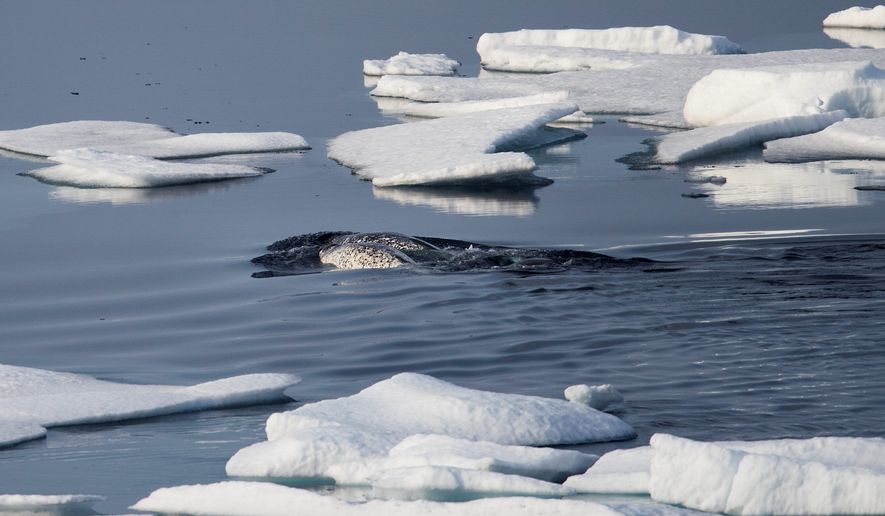OPINION:
Environmental Protection Agency (EPA) administrator Scott Pruitt wants to adopt a red team, blue team approach to weighing the scientific pros and cons about man-made global warming.
According to E&E News reporter Emily Holden, “Climate scientists express concern that the ’red team, blue team’ concept could politicize scientific research” related to global warming.
To paraphrase Captain Louis Renault in Casablanca, I’m shocked, shocked to find that politics is going on in climate science. Say it isn’t so that a former senator and vice president was behind the Oscar-winning “An Inconvenient Truth” and now “An Inconvenient Sequel: Truth to Power.”
That he and another senator arranged for NASA scientist James Hansen to give his famous testimony — that he was 99 percent certain that human activity was causing unprecedented warming — in a committee room with the air conditioning shut off and windows opened on a hot summer day in 1988.
That a current senator wants corporations, think tanks and scientists who dare question climate orthodoxy prosecuted civilly or criminally under federal racketeering laws.
And that a now-former president tweeted “Climate change is real — #ScienceSaysSo. Call out #climate deniers on Twitter.”
But it is so. Then-Sens. Al Gore and Tim Worth, both Democrats, set up the theatrics for Mr. Hansen’s testimony. Former Vice President Al Gore made the two movies. Sen. Sheldon Whitehouse, Rhode Island Democrat, wants skeptics investigated and prosecuted. And Barack Obama well, you get the point.
Now Emily Holden tells us “Climate scientists express concern that the “red team, blue team’ concept could politicize scientific research.” One reads that and, since it lacks any quantifier, automatically thinks, “So if you’re a climate scientist, you’ll think this.”
Ms. Holden should have written “Some climate scientists express concern .” But that, of course, would let the cat out of the bag that others do not share that view.
In fact, it might lead people to discover that some climate scientists think a red team, blue team approach is just the cure we need for the already-politicized scientific research that’s dominated federal agencies for the last decade or more.
Like John Christy, NASA award-winning climate scientist, distinguished professor of atmospheric science and director of the Earth System Science Center at the University of Alabama in Huntsville, who called for red team, blue team in his testimony before the House Science, Space and Technology Committee on March 29.
And Judith Curry, former professor and chairman of the School of Earth and Atmospheric Sciences at the Georgia Institute of Technology, who did the same.
Stephen Koonin, director of the Center for Urban Science and Progress at New York University and undersecretary of energy for science during President Obama’s first term, says the red team, blue team approach would “put the ’consensus’ to a test, and improve public understanding, through an open, adversarial process.”
But fear that red team, blue team would politicize climate science isn’t the only objection Ms. Holden trots out. She describes the idea as “reviewing climate science outside the normal peer-review process used by scientists.”
Oh, for shame, that anyone would dare question the sanctity of peer-reviewed science.
Yet Drummond Rennie, deputy editor of the Journal of the American Medical Association and intellectual father of the international congresses of peer review, says, “If peer review was a drug it would never be allowed onto the market.” That’s because, as Richard Smith summarized in the (peer-reviewed) journal Breast Cancer Research, “We have no convincing evidence of [peer review] benefits but a lot of evidence of its flaws.”
That’s particularly the case with climate science. MIT climatologist Richard Lindzen has documented bias in and corruption of the scientific peer-review process against “climate skeptics,” focusing on the case of his recent submission to the Proceedings of the National Academy of Sciences that was refused there under suspicious circumstances but later accepted by the Asian Pacific Journal of Atmospheric Sciences. “The unfortunate side-effect of this differential treatment,” wrote Mr. Lindzen, “is that a self-generating consensus slows the forward progress of scientific knowledge.”
It sounds like just the problem Mr. Koonin thinks red team, blue team would address.
Peer review’s failure is evident in the rapid rise in the frequency of retractions of peer-reviewed journal articles. Some people might argue that the retractions vindicate peer review. On the contrary, they actually vindicate the red team, blue team approach. How? Because retractions usually come when someone critiques a paper after it’s published and finds errors in it.
That’s what red team, blue team institutionalizes. It would ensure that reports prepared for the agency would be subjected to critique by qualified and properly funded scientists who are likely to disagree with it.
Their critique would lead to reports being defended, revised or abandoned. And that, in turn, would lead to better quality in government-funded climate (and other environmental) science.
Mr. Pruitt is right, and his critics are wrong. The EPA, and American taxpayers, will benefit from adopting red team, blue team.
• E. Calvin Beisner is founder and national spokesman of the Cornwall Alliance for the Stewardship of Creation.




Please read our comment policy before commenting.